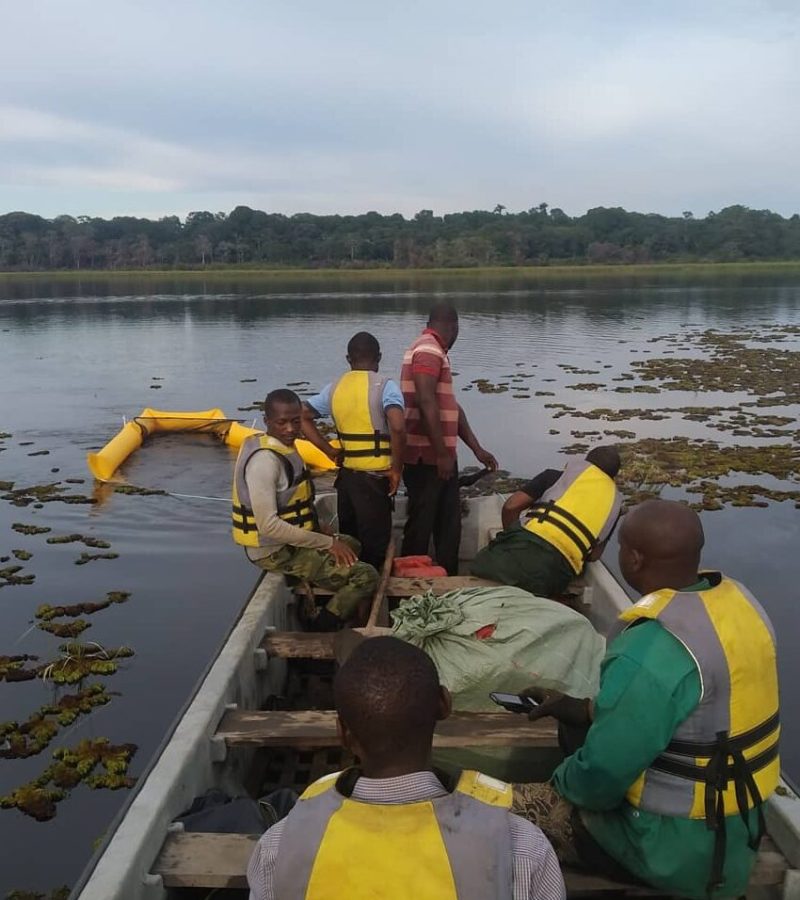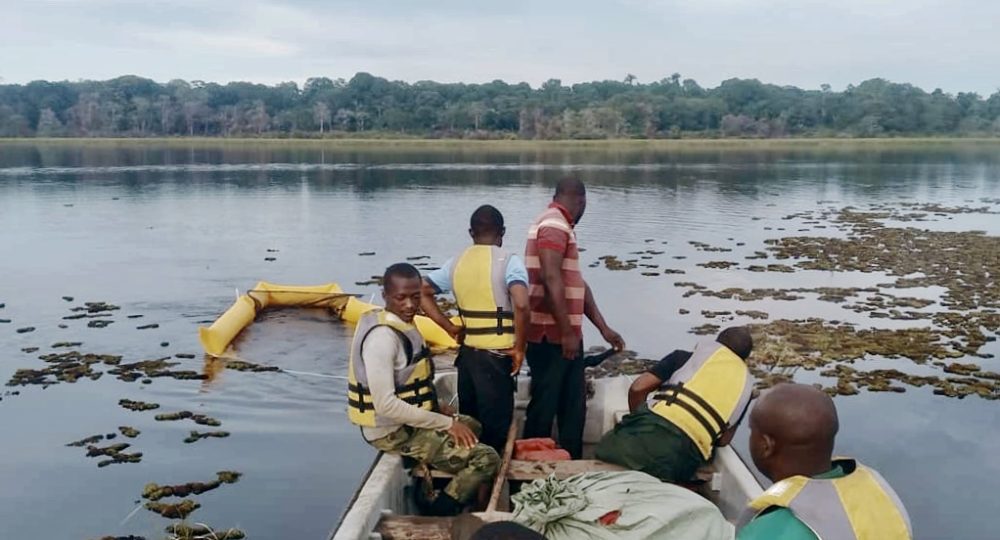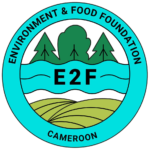project 4
Climate Emergency: Protecting Lake Ossa from Invasive Aquatic Plants (AIP)
About the project
Lake Ossa wetland complex, situated in Dizangué, Sanaga-Maritime division, is the largest natural lake in Cameroon, covering approximately 4,000 hectares and several islets. This freshwater ecosystem boasts rich biodiversity, housing a variety of wildlife species, including fishes, crustaceans, oysters, snakes, lizards, marine turtles, crocodiles, and the vulnerable African manatees. However, the lake faces a severe threat from invasive aquatic plants (AIP), particularly the fast-spreading Salvinia plant. This project, titled “Climate Emergency: Protecting Lake Ossa from Invasive Aquatic Plants,” aims to address the proliferation of AIP and safeguard the ecological integrity of the lake.

Calling All Change-makers
Target Audience & Beneficiaries
Fishers & fish traders
Farmers
community members
women & youth
CSOs & NGOs
policymakers
academia
governments

Project Objectives and Goals
Investigating AIP Salvinia Causes
Identify the root causes and sources of invasive Salvinia in Lake Ossa, and develop strategies to curtail its spread.
Manual & Mechanical Removal of Salvinia
Implement manual and mechanical removal activities to control and reduce the spread of the invasive Salvinia plant in the lake.
Capacity Building & Empowerment
Strengthen the capacity of stakeholders, including fishers, students, and eco-guards, in environmental conservation and restoration efforts.
Developing Alternative Livelihoods
Create alternative livelihood opportunities for fishers, reducing their primary reliance on the lake for sustenance.
Key Activities
Conducting Root Cause Analysis of AIP Salvinia Proliferation
Organizing Agroforestry Workshops for Indigenous Farmers
Manual and Mechanical Removal of Invasive Aquatic Plants
Capacity Building for Fishers, Students, and Eco-guards
Establishment of Community Forests.
Promotion of Ecotourism Opportunities.
Key deliverables
Implementation of Prevention and Control Measures for AIP
Increased Awareness among Indigenous Farmers about Agroforestry
Restoration and Conservation of over 1,000 hectares of Lake Ossa wetlands
Empowerment of Indigenous Communities and Improved Livelihoods
Implementation of Ecotourism Initiatives to Support Conservation Efforts
Your Support Means a Lot
E2F is a non-profit organisation that relies on donations and gifts to implement its activities. Every contribution goes directly into our project activities with complete accountability and transparency.
